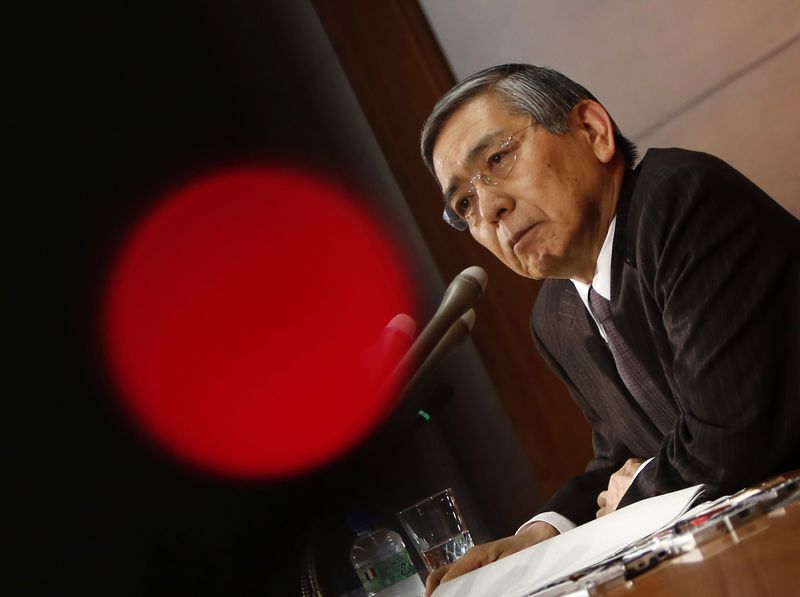By Leika Kihara
TOKYO (Reuters) - Bank of Japan board members made a rare call on the government to steadily promote measures to restore the country's tattered finances three weeks after expanding monetary stimulus, minutes of their November meeting showed.
The November rate review was held in the midst of Prime Minister Shinzo Abe's announcement to postpone a scheduled second sales tax hike next year, after the first tax hike in April pushed the economy into recession.
Abe's decided to put off increasing the sales tax despite repeated calls from BOJ Governor Haruhiko Kuroda to go ahead with the two-stage increase to rein in Japan's public debt which, at twice the size of its economy, is biggest among major industrialised nations.
"Members reaffirmed that it was extremely important to ensure the credibility of fiscal management, and it was for this reason that they expected the government to steadily promote measures aimed at establishing a sustainable fiscal structure," according to minutes of the BOJ meeting released on Thursday.
One of the two government representatives present at the policy-setting meeting said the government "took seriously" the board members' view and "acknowledged that it would work to ensure such credibility," according to the minutes.
At the Nov. 18-19 meeting, the BOJ kept monetary settings unchanged after having expanded stimulus in October to pre-empt a slowdown in inflation following a slide in oil prices from delaying the achievement of its 2 percent price target.
The BOJ kept policy steady at a subsequent meeting in December and policymakers hope to stand pat in coming months, pointing to initial signs of recovery in exports and output.
But some analysts expect the central bank may act again in January if slumping oil prices and weak demand force it to cut its rosy price forecasts.
At the November meeting, many members expressed their concerns over worsening consumer sentiment and warned that declines in oil prices would weigh on consumer inflation for the time being.
Still, Kuroda may struggle to sell any further monetary easing to a board deeply divided over the feasibility of the BOJ's radical stimulus programme. Four of the nine board members dissented to the BOJ's decision to ease in October.
Of the four, three voted with the majority in maintaining the stimulus in November. But one of them warned that the BOJ must be more vigilant to the risks associated with its aggressive monetary easing, the minutes showed.
"The decline in long-term interest rates due to the BOJ's massive government bond purchases entailed a risk that the mechanism of maintaining fiscal discipline through interest rates might be impaired," the member was quoted as saying.

The BOJ's huge bond buying has pushed 10-year government bond yields to a near two-year low of 0.325 percent.
(Reporting by Leika Kihara; Editing by Chris Gallagher and Eric Meijer)